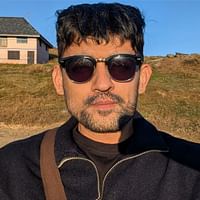Ukraine's Marta Kostyuk saved two match points to overcome Maryna Zanevska 6-7(5), 7-6(6), 7-5 in a marathon first-round tussle at the 2022 BNP Paribas Open.
Following the contest, Kostyuk shared an emotional moment with Zanevaska, who was also born in Ukraine. In a subsequent interview with L'Equipe, the 19-year-old revealed that she told Zanevska she played "incredible," before expressing hope that her parents, who are still in Ukraine, would be safe.
"Her parents are in Ukraine," Kostyuk said. "They’re in a calmer area but everyone is afraid. I told her she played unbelievable and that everything is going to be okay. Our parents are going to be okay."
Shifting her focus to the tennis community's reaction to the Russian aggression in Ukraine, Kostyuk said she had received support from her close friends on the tennis circuit and her team.
The Ukrainian, however, was left unimpressed by some of the other reactions to have come out of the tour. The 19-year-old said the "no war" and other similar messages from Russian players calling for peace felt "empty."
"I haven't felt alone since the beginning of the war," Kostyuk said. "I was surrounded. I was in Monaco when it all started. My best friend, Kata Zavatska, came to see me because she was alone. We helped each other. My team surrounded me well, their support was incredible."
"I do not like it. Again, you don't need to be involved in politics to know what's going on, who's invaded who, who's bombing who," she continued. "To me, these releases don't make sense. They are empty! So today say 'No war', for me it means wanting Ukraine to give up."
"My job is to play tennis, this is how I can help" - Marta Kostyuk after Indian Wells win over Maryna Zanevska

Kostyuk also spoke about her mental state going into a competitive match while her family and countrymen were fighting the Russians back home. The youngster said that while she felt "guilty" for not being in Ukraine, she was handling the situation the best way she could.
The Ukrainian added that everyone had their own way of helping and felt that hers was by playing the best tennis she could.
"I bear the situation as best I can," the Ukrainian said. "Everyone is different. I chose to fight by coming here. At first I felt guilty for not being there. All my family is there except me, why? I felt guilty playing tennis, that the sky above me was blue, bright and calm."
"But it's not healthy," she continued. "Everyone fights as they can. My job is to play tennis. This is how I can help. I would be much less useful if I returned home to volunteer. I'd love to do that, but I think I'm more useful here."
